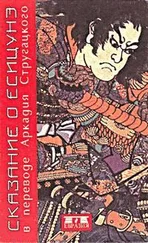Unknown - Deportation
Здесь есть возможность читать онлайн «Unknown - Deportation» весь текст электронной книги совершенно бесплатно (целиком полную версию без сокращений). В некоторых случаях можно слушать аудио, скачать через торрент в формате fb2 и присутствует краткое содержание. Жанр: Старинная литература, на английском языке. Описание произведения, (предисловие) а так же отзывы посетителей доступны на портале библиотеки ЛибКат.
- Название:Deportation
- Автор:
- Жанр:
- Год:неизвестен
- ISBN:нет данных
- Рейтинг книги:3 / 5. Голосов: 1
-
Избранное:Добавить в избранное
- Отзывы:
-
Ваша оценка:
- 60
- 1
- 2
- 3
- 4
- 5
Deportation: краткое содержание, описание и аннотация
Предлагаем к чтению аннотацию, описание, краткое содержание или предисловие (зависит от того, что написал сам автор книги «Deportation»). Если вы не нашли необходимую информацию о книге — напишите в комментариях, мы постараемся отыскать её.
Deportation — читать онлайн бесплатно полную книгу (весь текст) целиком
Ниже представлен текст книги, разбитый по страницам. Система сохранения места последней прочитанной страницы, позволяет с удобством читать онлайн бесплатно книгу «Deportation», без необходимости каждый раз заново искать на чём Вы остановились. Поставьте закладку, и сможете в любой момент перейти на страницу, на которой закончили чтение.
Интервал:
Закладка:
Deportation
The Meganesia Cycle
Mini-Novel — transutopia
Author: Alexander Rozoff
Translated by: Agent Krom
Prologue .
CNN, Lanton , Tintung Island, Nelson County, Meganesia. Camera. On air.
The camera shows a smiling bald man in the middle of a plaza framed by thick flowering shrubs. In the center of the plaza,on a bulky stone pedestal stands a silver statue of a young girl dressed in lava-lava.
“As you know, Meganesia is currently in the center of a major international scandal, and I am reporting from the main square of its capital, Lanton, located on the Tintung island. Formerly, this place was the governor’s residence, but it was blown up during the so-called aluminium revolution. Only a piece of the foundation remains, and it now hosts the monument for Queen Laonirua, or, as the locals call her, Queen Lao.
The real name of Queen Laonirua was Lisa Korn. Ms. Korn, born in Boston to an African American and a Chinese, began her career by performing in musicals at the virtual theater of Nicholas Skinner. Later, as Skinner was convicted of tax evasion, together they escaped the US and moved to Lanton, which at the time was the administrative center of British Oceania. Here they got involved in a Batak nationalist revolt which attempted to restore the monarchy that preceded the British dominion. Ms. Korn presented herself as an heiress to the ancient royal family, using her resemblance to an aboriginal. This clumsy scam would only have remained a joke if Ms. Korn wouldn’t get accidentally shot during a clash between Bataks and the colonial authorities, right as she’s been singing Louis Armstrong’s “Go down, Moses”.
A dead Ms. Korn made a far more convincing Queen Laonirua than a live one, and the next day the local ultras were chanting “Let my people go”, a refrain of the song and also a line from the book of Exodus. The crowd, however, was confronted by the police with water cannons and tear gas. In response, the ultras invited mercenaries, the Hutus and Vietnamese military instructors, who staged mine warfare in Lanton and on the Tintung island. Same day all the administrative buildings and barracks of the colonial troops got destroyed. The mercenary raids forced the British troops to leave the island, then the entire Nelson archipelago, and later the nearby archipelago as well. The rebels established Meganesia, an independent confederation of four archipelagos, and adopted the "Magna Carta", a weird mixture of communism, fascism and Rousseauism.
The self-proclaimed National Convention appointed a technocratic government, and established the Supreme Court manned by elected judges, granting it draconian powers. The best of the mercenaries formed the police force to carry out the decisions of this court. The archipelago experienced a wave of repressions and nationalizations. The Batak nationalist party tried to remind of its role in the coup, but was cruelly drowned in blood. The revolution, as always, devoured its children. The Supreme Court banned all political parties and all state institutions, declaring state an anti-national idea and a stronghold of the old regime.
These reforms have attracted a significant number of leftist groups from South America. They were promptly organized into an armed force. Their lack of experience was compensated by extreme brutality of their operations and terror acts. After a bloody incident involving the US-Japanese concession Pan Zhong, the Supreme Court declared terrorism an official military doctrine. This caused a half a year long international isolation of Meganesia, which was interrupted only due to the need to maintain navigation in the area. By then the confederation has accreted several additional archipelagos, which made many Pacific trade routes find themselves within Meganesian waters, or at least in their two hundred mile zones. The region was quickly discovered by private investors attracted by low taxes. The freedom of private business has mostly been preserved in Meganesia, and in some cases it exceeds that of the West. Natural resources and certain industries were nationalized, and while the practice of so-called social observers sometimes appears scary, that did not stop business ventures attracted by the tax carrot.
Despite the absurdity of the resulting regime it proved viable, embarrassing political analysts who predicted its rapid collapse. There is nothing new under the sun, and in fact something similar has happened the last century in Cuba. Like Cuba, Meganesia was jokingly called the "Island of Freedom". The two countries have a similar population size and land area, except Meganesia is scattered across thousands of small islands and atolls of the Pacific Ocean, making its naval area larger than the area of the whole African continent. The local regime is very different from the Cuban, and it’s even more repressive. One witty commentator called this regime a dictatorship without a dictator, and an anarchy without anarchists. Another paradox: Meganesia placed 34th in the global well-being rating, just behind the developed countries. To the tourists it may seem the state of the art, with the absolute freedom of everything, not constrained even by basic decency. But if one breaks the tiniest of the rules of the local Magna Carta, the repressive apparatus will come after them with all its might. This happened recently with several humanitarian organizations when the police opened fire on peaceful demonstrators without warning, injuring dozens of people and killing two. Nineteen public and religious leaders were thrown to jail. Their organizations were banned, the property — confiscated, and they were sentenced to death, softened later to immediate deportation.
What was the crime of these people? It turns out they just demanded respect for their religion and morality, as guaranteed by the international human rights accords. For more about how meganesians understand their freedom, we are switching to my colleague, Michael O'Donnell, who is now in Strasbourg where the representative of the Meganesian Supreme Court has recently made a scandalous statement.
With you was Ken Wilson, exclusive for CNN from Lanton.“
1. Graendal Vlkov, a Supreme Judge by lot
To avoid drawing unwanted attention, Graendal wore tinted glasses through the flight, and queued last in the border control line. Nobody paid attention to the taut man, a little taller than average, forty years old, dressed in loose pants and a gray linen shirt.
Only during the face control did he take off his glasses, and the young lieutenant immediately lost his official phlegmatic posture .
— You are the Graendal Vlkov? The judge?
— Yes, don’t I look like him?
— I have just learned. I saw yesterday on TV. Wow you made them squirm!
— Really?
— In my opinion, yes. Here’s your card, sen Vlkov. Welcome back home. Good luck!
— Thank you, sen officer.
The home, at the Sonfao atoll, has been 700 kilometers away, but homey spirit surrounded him as soon as he got onto the train from the airport to the Lanton bay pier. A motley crowd of all races and colors, dressed in all possible styles of clothing, from mild tropical denim suits to traditional sarongs and lava-lava, gesturing animatedly, chatting with each other and on mobile phones in all eight primary Meganesian languages. Sunset time is a kind of a rush hour in Lanton.
The announcement of the contest for social administration was less than a month away, so the political agendas advertising, languen guangao (join our wishes), or « soc4u » (in the SMS jargon) have filled almost all the posters, tusinbao, along the route.
Are you wealthy enough to not care about utility costs? We are not. Vote for the quota for the poor in the supervisory board of public utilities. It is profitable to you.
Читать дальшеИнтервал:
Закладка:
Похожие книги на «Deportation»
Представляем Вашему вниманию похожие книги на «Deportation» списком для выбора. Мы отобрали схожую по названию и смыслу литературу в надежде предоставить читателям больше вариантов отыскать новые, интересные, ещё непрочитанные произведения.
Обсуждение, отзывы о книге «Deportation» и просто собственные мнения читателей. Оставьте ваши комментарии, напишите, что Вы думаете о произведении, его смысле или главных героях. Укажите что конкретно понравилось, а что нет, и почему Вы так считаете.





